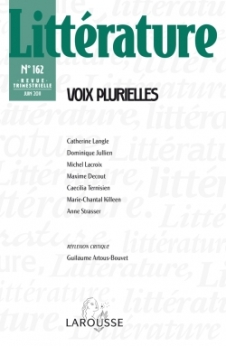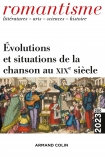
Littérature n° 162 (2/2011)
Pour acheter ce numéro, contactez-nous
Recevez les numéros de l'année en cours et accédez à l'intégralité des articles en ligne.
À partir d’« Adieu » de Balzac, histoire d’un traumatisme de guerre et d’une expérience thérapeutique radicale, on analyse la manière dont le texte hésite entre le discours clinique (place du savoir médical, en particulier les fondateurs de la psychiatrie moderne, Pinel et Esquirol), l’intuition scientifique (à certains égards déjà proche de Freud), et le symbolisme ambigu qui justifie l’inclusion de la nouvelle dans les Études philosophiques dont elle partage le caractère énigmatique.
Balzac’s Adieu tells the story of a war trauma and a radical therapeutic experiment ; it enables the analysis of how the text hesitates between clinical discourse (with room for medical knowledge and in particular for the founders of modern psychiatry, Pinel and Esquirol), scientific intuition (in some respects already close to Freud), and the ambivalent symbolism which justifies the inclusion of the short story in the Philosophical studies whose enigmatic characteristics it shares.

